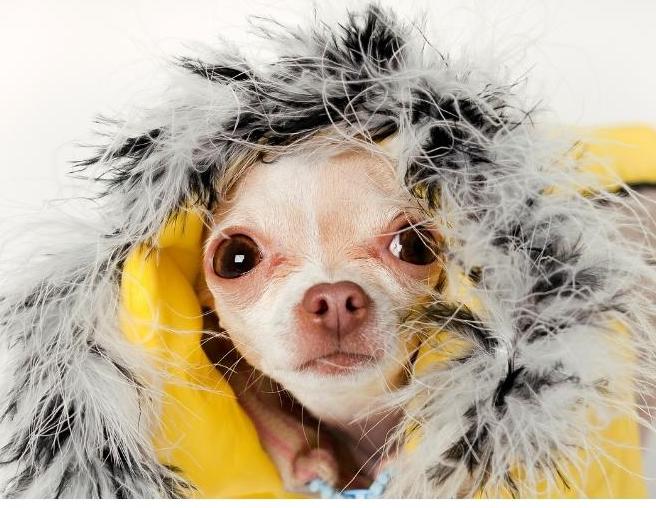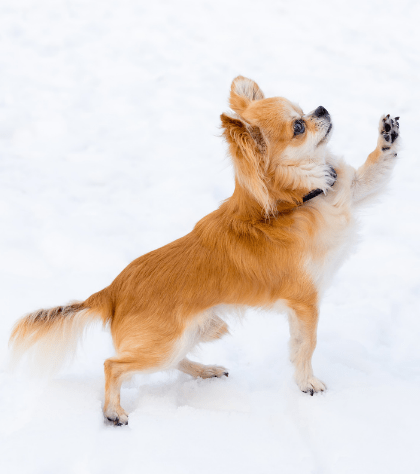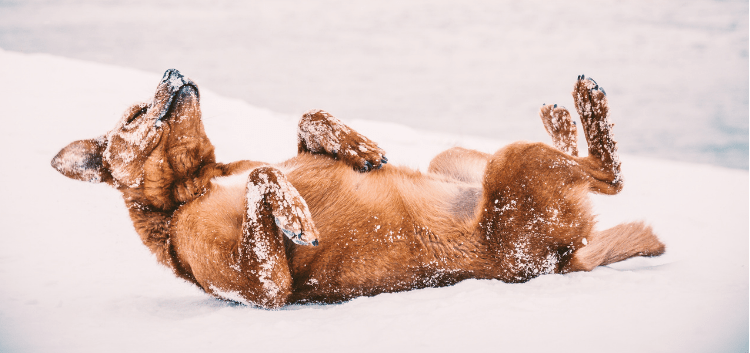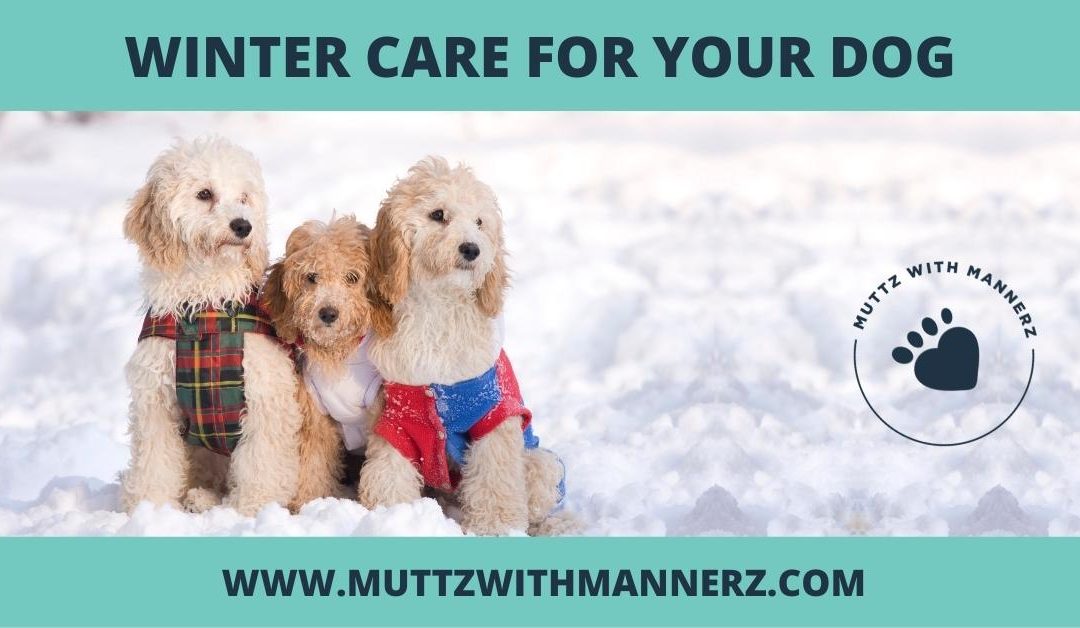The weather outside is frightful are you and your dog ready for the deep freeze?
Some dogs can play all day in the snow while others can only sustain a few minutes and are more like a fireplace pup.
How do you keep your dog comfortable in the winter?
We want to share with you how to protect your dog from the elements and what hazards to watch out for. Your dog’s breed and age will determine how much of the outdoors they can handle when temperatures fall. The goal is to keep them comfortable, safe, and warm.
Here are a few tips to help:
Baby, it’s cold outside!
 Regardless of their breed or age, it’s best to get your dog used to the snow and cold slowly. A puppy’s enthusiasm may get pushed too far for the sake of play and a senior’s age may make them feel the cold much sooner.
Regardless of their breed or age, it’s best to get your dog used to the snow and cold slowly. A puppy’s enthusiasm may get pushed too far for the sake of play and a senior’s age may make them feel the cold much sooner.
If it’s cold for you outside then it is likely cold for your dog too! If your dog is not blessed with thick fur that can keep them naturally warm you may want to invest in a coat or sweater for them. If you see them shivering, then you know it’s time for one! The coat will keep their bodies warm – but don’t forget their ears or paws. Keep a close eye on your dog when they are outdoors, for many it doesn’t take much time for them to get cold.
If you love to spend lots of time outdoors and bundle up that’s great but be aware that your pet may not share the same love or be able to tolerate it for as long as you can. If they love the outdoors but not the cold, then limit their time and take them outside more often, but for shorter time periods. Always supervise them if they are out.
Lounging by the fire on a cold day.
With the colder temperatures and less time outdoors, some dogs may get lazier. If they are less active, they will need fewer calories. Watch your dog’s activity and adjust their calorie intake based on that. Fresh water, on the other hand, should never be limited. Your dog can dehydrate just as quickly in the winter as it can in the summer. Your fireplace or the heat from your furnace can also dehydrate them. When outdoors your dog may eat snow – but this is not a replacement for fresh water.
That fur coat may be warm, but it doesn’t come off.
Your dog’s fur coat needs to be well-groomed to keep them warm and insulated. If your dog spends lots of time outdoors this is especially important. After bathing your dog make sure you dry them thoroughly before they go outdoors again.
 The winter cold can bring dry, cracked pads. The fur between your dog’s feet should be trimmed, as it can gather snow and form ice that can build up creating discomfort.
The winter cold can bring dry, cracked pads. The fur between your dog’s feet should be trimmed, as it can gather snow and form ice that can build up creating discomfort.
The sidewalks may have winter salt on them that can burn your dog’s pad and it can be toxic – so after walks rinse or wipe their paws to remove any salt to avoid them licking the salt on their paws.
Outdoor hazards
Snow and ice can cover ponds and lakes and dogs may venture out not knowing the danger. Ensure you steer clear of frozen ponds and lakes to avoid those unsafe surfaces.
If your dog is a senior, cold weather can aggravate certain medical conditions – especially arthritis. Your dog still needs walks but be mindful of those icy surfaces and give them time at home to recoup in a comfy, warm place.
With icy windshields comes antifreeze. Antifreeze tastes sweet and dogs will be drawn to lick or drink it. Avoid this at all costs as it is very toxic and just a small amount can be fatal! If you have antifreeze in your home or garage keep it stored far away from where your dog can get it.
Snow can be fun but it can also be dangerous. When the snow piles up in the backyard or up against a fence it may provide an escape route for your dog to get out and explore. Also, watch for any snow or ice on the roof as it may accumulate then fall and injure your dog.
Winter should be a fun and festive time if you enjoy the colder temperatures.

Some dogs love it – so make sure they stay safe and are cared for during the cold winter weather.
For ideas on how to train your dog physically and mentally in winter check out this blog article >> 7 Ways to Train Your Dog during Winter.
Tune into our podcast where we discuss more information of care for your dog.

